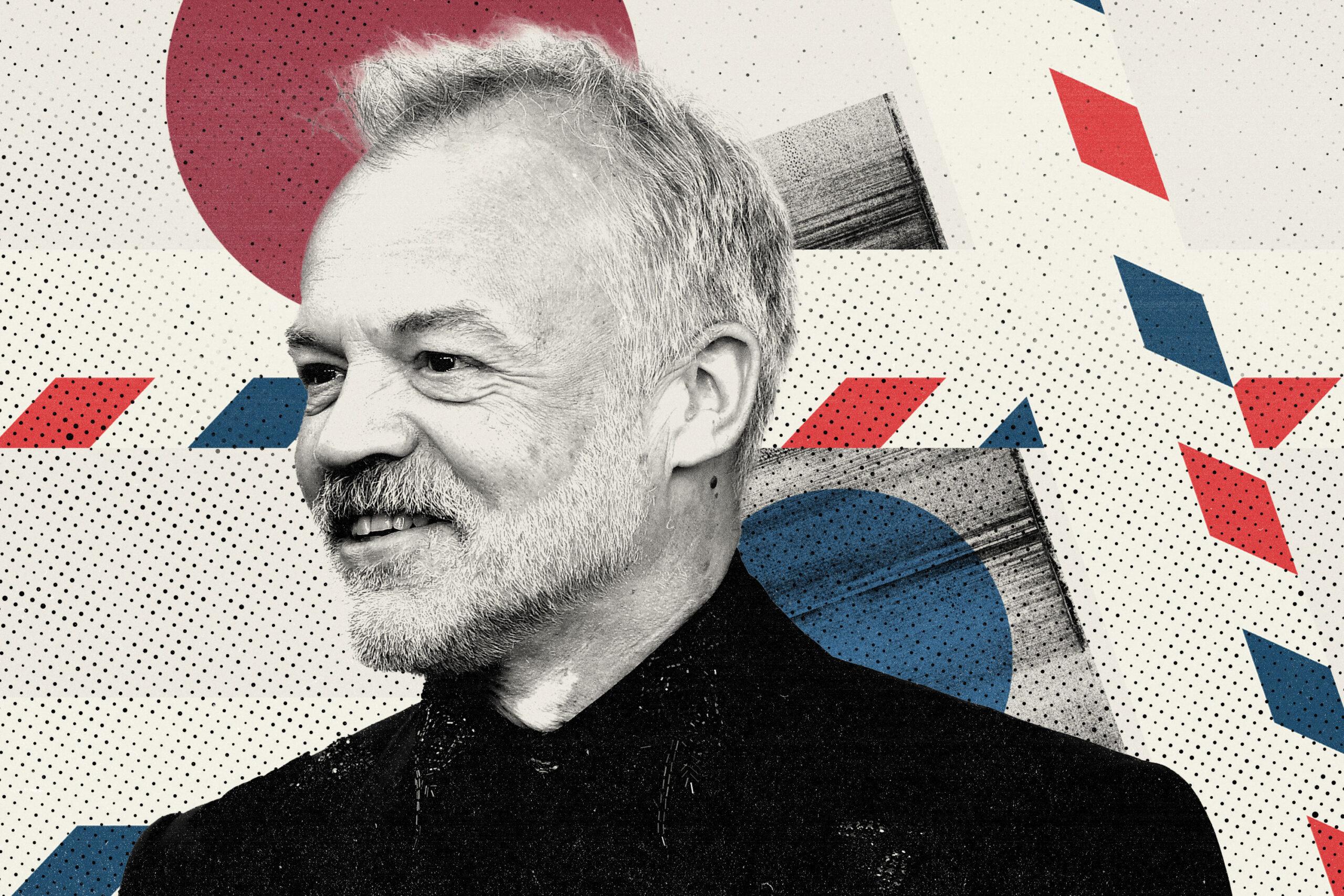
One hundred years ago this week, the company that would become known as the British Broadcasting Corporation was founded in London. Transmitting news and entertainment across radio and television, the BBC would go on to have a far-reaching impact on not only the United Kingdom, but also audiences worldwide. To mark the anniversary, The Ringer is celebrating one of the BBC’s chief exports to the United States: British TV. From Masterpiece Theatre to Love Island, join us as we look back on some of the iconic shows that have crossed the pond in the past century.
In the United States, late-night television has been in something of a rut. When hosts aren’t forcing celebrities to play tacky games clearly designed with YouTube’s algorithm in mind, they often rely on the low-hanging fruit of Donald Trump and the never-ending Republican circus. For viewers who want their late-night shows to actually be funny or reveal some semblance of an A-listers’ personality, the options are slim—and that was before the tragic, unceremonious split between Desus Nice and the Kid Mero. (Is it too late to arrange a peace summit at a Bronx bodega?) But while late-night shows continue to falter stateside, there remains one saving grace across the pond: The Graham Norton Show.
Hosted by Irish comedian Graham Norton, the series has been on BBC airwaves since its debut in 2007, and kicked off its 30th season last month. (The show also airs on BBC America in, you guessed it, America.) For the uninitiated, The Graham Norton Show adheres to a pretty straightforward format: After a brief opening monologue from the host, most of the program is devoted to a group of celebrities coming out at once, sitting on a couch, and conversing amongst themselves with Norton steering the conversation in whatever direction best engages them. (Just one example: Ben Affleck, Sienna Miller, Emma Stone, and Ryan Gosling all recounting when they took their parents to award shows.) Aside from that, the show features a musical guest and audience members sharing anecdotes from a red chair—depending on the quality of their story, they will either be allowed to walk away unscathed or get dramatically flipped over by Norton (or a celeb) pulling a giant lever.
Part of The Graham Norton Show’s appeal is its simplicity: a talk show that actually places an emphasis on, well, talking. But there is also a commendable level of research that Norton and his team put into every episode, often finding some bizarre nugget of a celebrity’s life that hadn’t become wider public knowledge, like when Rosamund Pike admitted to going on a blind date with a fan at the urging of Dame Judi Dench. (“If Judi Dench told you to do something, you’d do it, wouldn’t you?” Pike added, to which the audience responded with a collective “Yes!”) Make no mistake, the celebrities will still find space to plug whatever they’re promoting—a new movie, TV show, album, etc.—but when the episodes run at 40-odd minutes, there’s plenty of room for the conversations to go to unexpected places.
To that end, some of The Graham Norton Show’s most iconic moments have been borne out of complete spontaneity. There was the time that a giant fly interrupted Steve Carell, Kristen Wiig, and Chris O’Dowd before it found its way into O’Dowd’s beer. (Sadly, the fly did not survive the accidental journey into O’Dowd’s mouth, but the ridiculous sequence of events did contribute to the show’s raucous atmosphere.) Perhaps the show’s all-time-funniest exchange came courtesy of frequent guest and professional chaos agent Miriam Margolyes, who, after Dominic Cooper shared an embarrassing story about accidentally exposing his penis while working at a cafe, all but confessed to seeing his [clears throat] package when they were backstage. “The funny thing is, when you’re gay—as I am—and you never see a cock from, you know, Martinmas to Christmas, you’re very aware of them,” Margolyes said. “They’re hanging all around, all the time, and I’m very short.”
It’s hard to imagine another scenario where the star of AMC’s Preacher and the Mamma Mia movies would rub shoulders with Harry Potter’s Professor Sprout, let alone talk about the latter’s penis, which is the other key ingredient of Norton’s format: gleefully random celebrity groupings. While guests don’t always vibe with one another, the unpredictability often leads to genuine laughs and instant virality. If Jodie Foster, Russell Crowe, and (again) Ryan Gosling didn’t know much about Welsh comedian Greg Davies prior to appearing on the show with him, they certainly came away as fans when he left them in stitches sharing an unreal anecdote from his days as a teacher. (I can’t do the story justice; please watch for yourself.)
While the lively group setting Norton has cultivated isn’t exactly new for late night—you can trace this approach back to The Merv Griffin Show, which was hilariously parodied on an episode of Seinfeld—it hasn’t been successfully replicated elsewhere. James Corden has tried to re-create that atmosphere by having multiple guests together on The Late Late Show, but there isn’t nearly enough time devoted to in-depth conversations on a program best known for karaoke sessions in cars. (It’s also worth noting Corden’s inferior, surface-level interviewing technique, which might be as disappointing as his apparent treatment of restaurant servers.)
In any case, Norton has already cemented himself as modern talk show royalty—someone whose greatness stems from a willingness to give his guests the spotlight and embrace his role as a “comedy butler.” (Which, incidentally, gives the viewer more appreciation for the show’s selfless ringleader.) If the late-night landscape in the United States is going to level up—and that’s a big if given the state of things—then our hosts should look to BBC’s The Graham Norton Show and its namesake comedian as the blueprint. As Norton has repeatedly demonstrated, late-night television doesn’t need some dramatic reinvention to thrive: Sometimes, all one has to do is give the A-list guests a chance to mingle, and let them take care of the rest.

